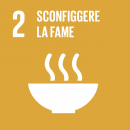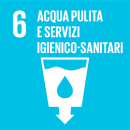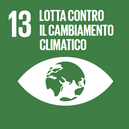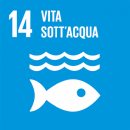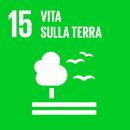Responsible Consumption and Production of Food – Prof. Carola Ricci
- 09, 07, 2022
The course will mainly focus on SDG12, but will also tackle SDGs 2, 6, 13, 14, 15.
Title: Responsible Consumption and Production of Food
Provider: University of Pavia, Prof. Carola Ricci
Date: 13th-22nd November 2023 (First Semester Academic Year 2023-2024)
PROGRAM
The Course is part of two projects financed by the European Union – NextGenerationEU, namely: NODES (Nord Ovest Digitale E Sostenibile) which has received funding from the MUR – M4C2 1.5 of PNRR with grant agreement no. ECS00000036, and PE10-ONFOODS (Research innovation network for Food and Nutrition Sustainability, Safety and Security).
The program is divided into five modules, as follows:
L1: Food safety and security: their interralation and the need for a multilevel approach – C. Ricci, Monday 13th November, h 17.00-19.00
L2: Food waste and loss: a tentative definition, actual and future challenges – C. Ricci, Wednesday 15th November, h 17.00-19.00
L3: Circular economy and the food system – B. Re, Monday 20th November, h 17.00-19.00
L4: Case study presentation on the multi-stakeholder approach to reduce food waste: food donation the so called “Legge Gadda” and the role of NGOs in Italy and Europe –Banco Alimentare and European of Food Banks Federations (moderated by prof. Ricci), Wednesday 22nd November, h 17.00-18.30
L5: Case study presentation on food waste valorisation: a success story by the private sector – Verabuccia (tbc-introduced by prof. Ricci), Wednesday 22nd November, h 18.30-19.00
Description of the course:
A large share of the world population is still consuming far too little to meet even their basic needs. The Agenda 2030 for Sustainable Development Goal (SDGs) calls for halving per capita global food waste at the retail and consumer levels and reducing food loss along production and supply chains (including post-harvest losses) by 2030 (SDG 12 target 3). Reducing food loss and waste has the potential to contribute to other SDGs as well, including the Zero Hunger goal (SDG 2), which claims end to hunger, the achievement of food security and improved nutrition, and the promotion of sustainable agriculture. The expected positive environmental impacts from reducing food loss and waste would also affect, among others, SDG 6 (sustainable water management), SDG 13 (climate change), SDG 14 (marine resources), SDG 15 (terrestrial ecosystems, forestry, biodiversity).
In this vein, the aim of the course is firstly to introduce with an interdisciplinary approach the right to ‘adequate’ food (in its quantitative and qualitative components), presenting its multilevel dimension (national, European and international). The course will then provide a general overview of the distinction between food loss and waste, the shortcomings of a lack of uniform definition of the latter, analysing official data referred both to the worldwide and local context, introducing the class also to the basic concepts of circular economy, in order to verify the possibility to adopt a more effective approach for a sustainable consumption and production of food.
A recent Italian best practice will subsequently serve as a case study of a fruitful ‘multi-stakeholder approach’ adopted to reduce food waste and enhance food security through food donations: it will be introduced by two of those NGOs which contributed to and daily work for its accomplishment in Italy and in the EU (Banco Alimentare and European Food Banks Federation). Finally, another success story of a food waste valorisation initiative by the private sector will be presented to the class directly by its inventors (Verabuccia).
Learning outcomes:
- Basic knowledge of the interrelation between food safety and food
security and the link between responsible food production/consumption
and sustainable development strategies for present and future
generations - Methods and tools suggested by a best practice to assess a more
responsible consumption and production to activate virtuous behaviours
by producers, consumers and retailers - Awareness on sustainable approach as a consumer and as possible
change maker in the public or private sector.
How: in streaming on line.
Zoom link: https://us02web.zoom.us/j/82538884277 (ID: 825 3888 4277, Passcode: 238029)
Credits: 1 (8 hours).
Time period: First semester A.A. 2023/2024
Any prerequisites: No specific previous knowledge is required. It is proposed to all the
Students of the University of Pavia and of the Universities particiating to the ‘EC2U’ Alliance.
Learning resources: Materials (slides, topic specific video lectures and interviews, readings)
will be indicated in class and made available on the KIRO course page, available here.
Type of assessment: Multiple choice test on the contents presented and discussed in class
(through Kiro testing).
Quality assurance: University of Pavia.

